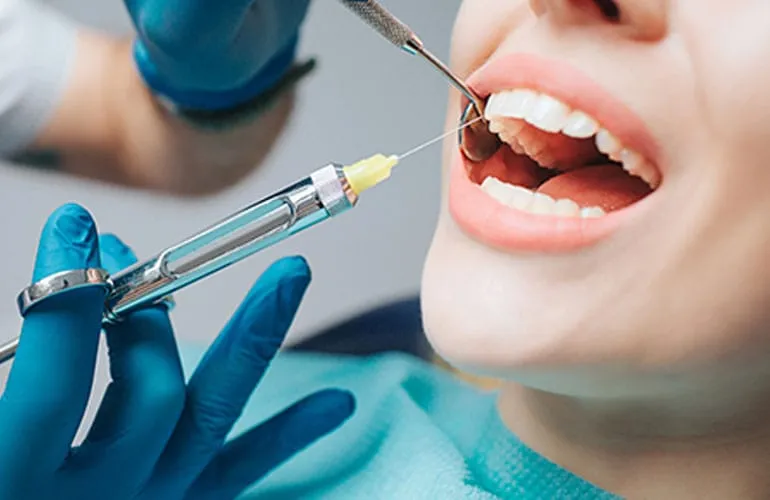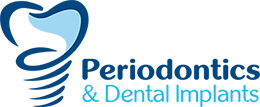
We offer a range of dental sedation options to ensure a relaxing and stress-free experience
At Smiley Implants, your comfort and peace of mind are our top priorities. We understand that dental anxiety and fear can prevent many patients from seeking the care they need. That’s why we offer a range of dental sedation options to ensure a relaxing and stress-free experience. Our experienced team is dedicated to providing personalized care, ensuring that each visit is as comfortable and pleasant as possible.
What is Dental Sedation?
Dental sedation involves the use of medication to help patients relax during dental procedures. It is an effective way to alleviate anxiety, minimize discomfort, and allow for more complex dental work to be completed in fewer visits. Sedation can be tailored to meet the specific needs and anxiety levels of each patient, ranging from mild relaxation to deep sedation.
Benefits of Dental Sedation
- Reduced Anxiety: Alleviates fear and anxiety, making it easier for patients to undergo necessary dental treatments.
- Enhanced Comfort: Minimizes discomfort and pain, ensuring a more pleasant experience.
- Efficient Treatment: Allows the dentist to perform multiple or complex procedures in a single visit, saving time.
- Improved Cooperation: Helps patients who have difficulty sitting still or have a strong gag reflex.
- Positive Experience: Encourages regular dental visits by creating a more comfortable and stress-free environment.
Types of Dental Sedation
-
Nitrous Oxide (Laughing Gas):
- Description: A mild sedative inhaled through a small mask placed over the nose.
- Effects: Induces a state of relaxation and euphoria, reducing anxiety.
- Advantages: Quick onset, adjustable levels of sedation, and rapid recovery, allowing patients to drive home after the procedure.
- Use: Ideal for patients with mild to moderate anxiety.
-
Oral Sedation:
- Description: Sedative medication taken in pill form, usually about an hour before the dental procedure.
- Effects: Produces a deeper level of relaxation, making patients feel drowsy but awake and able to respond to instructions.
- Advantages: Simple administration and effective for moderate to severe anxiety.
- Use: Suitable for patients who need a stronger level of sedation than nitrous oxide provides.
-
IV Sedation:
- Description: Sedative drugs administered directly into the bloodstream through an intravenous line.
- Effects: Induces a deep state of relaxation and partial or full unconsciousness.
- Advantages: Provides a higher level of control over sedation levels, allowing for quick adjustments during the procedure.
- Use: Recommended for patients with severe anxiety, those undergoing lengthy or complex procedures, or individuals with special needs.
-
General Anesthesia:
- Description: A combination of intravenous drugs and inhaled gases that render the patient completely unconscious.
- Effects: The patient is fully asleep and unaware of the procedure.
- Advantages: Suitable for extensive surgical procedures and patients with extreme dental phobia or special healthcare needs.
- Use: Typically performed in a hospital or specialized surgical setting.
Preparing for Dental Sedation
- Initial Consultation: Discuss your medical history, anxiety levels, and any previous experiences with sedation with your dentist to determine the best option for you.
- Pre-Procedure Instructions: Follow specific instructions regarding food and drink intake before your appointment, as certain types of sedation may require fasting.
- Transportation: Arrange for a responsible adult to drive you to and from the appointment, especially if you are receiving oral sedation, IV sedation, or general anesthesia.
- Clothing: Wear comfortable, loose-fitting clothing to your appointment.
- Medications: Inform your dentist of any medications you are currently taking, as adjustments may be necessary.
Post-Procedure Care
- Recovery Time: Recovery time varies depending on the type of sedation used. Nitrous oxide wears off quickly, while oral and IV sedation may require several hours of rest.
- Supervision: Have a responsible adult stay with you for a few hours after the procedure, particularly if you have received a deeper level of sedation.
- Hydration and Nutrition: Drink plenty of water and eat light, soft foods as you regain full alertness.
- Activity Level: Avoid strenuous activities and rest as needed until the effects of the sedation have completely worn off.
- Follow-Up: Adhere to any specific post-procedure instructions provided by your dentist and schedule follow-up appointments as necessary.
At our practice, we are committed to providing a comfortable and stress-free dental experience. If you experience dental anxiety or are considering sedation for an upcoming procedure, contact us today to learn more about our dental sedation options. Dr. Hassan is here to help you achieve optimal oral health with peace of mind.

